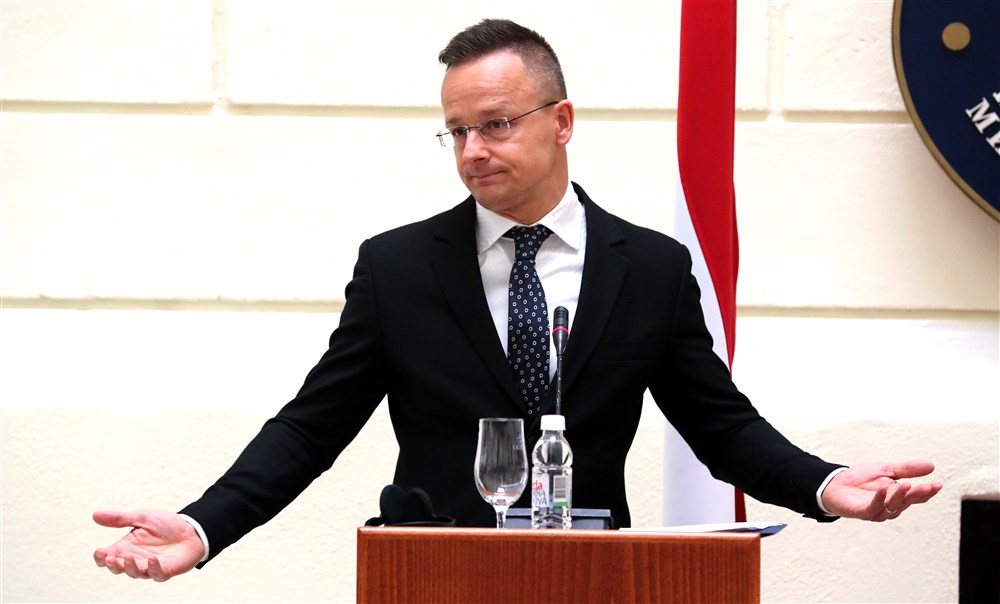MEPs have dismissed a study claiming they are among the most “pro-Putin” politicians in the European Parliament.
Accusations they are acting as Putin’s “henchmen” are “stupid” and “slurs”, they say.
German Euro MP Özlem Alev Demirel, 12th on a list of alleged pro-Putin law-makers drawn up by independent Russian media Novaya Gazeta Europe, called the findings “misleading” and “outrageous”.
Other MEPs contacted by the Brussels Signal were equally condemning.
The list of 20 MEPs, published in February, ranks them based on their voting track record in the European Parliament on Ukraine war resolutions. It gives details of the number of times they voted against, abstained or did not vote between 2019 and 2023.
“Of course I voted against [the resolutions] when the response of the EU and Nato states to Russia’s brutal invasion is to prolong this war with arms supplies and military support for their own geographical interests,” said Demirel, an MEP from Germany’s Die Linke party who sits in the The Left group in the European Parliament. “Of course I am in favour of punishing all war crimes,” said Demirel. “But I reject a special tribunal that would undermine the existing international jurisdictions and reinforce the double standards of the West.”
She continued: “All those responsible for war and crime in this world should be brought before international tribunals – but this would then also mean, in addition to Russian crimes, the crimes of the USA, Germany, France, the NATO states or other allies for crimes in Afghanistan, Yemen, Kosovo, Syria and many more.”
Demirel said she “will never feel sympathy for the Putin regime” and strongly condemned the invasion. She added she rejects the “imperial interests that underlie this war”, adding “I want this war and the killing in Ukraine finally ends [sic] and I want to have serious debates about ways to end the war.”
But, she argued, the publication of the study — and its “misleading” attributions— “makes it clear that militarisation processes and times of war always go hand in hand with abandoning the basic rules of liberal, democratic and fact-based discussion culture.”
Anyone who contradicts this narrative “is labeled a ‘pro-Putin’ or ‘Putin’s useful idiot’.”
The MEP at the top of the list, Tatjana Zdanoka, a Latvian Russian Union politician, said she “will not comment [on] such a stupid issue as ‘ranking’ of MEPs by any criteria.”
“There are lots of lists, slurs, circulating about supposed Putin supporters,” said a source close to Gunner Beck, an MEP from Germany’s AfD party who sits in the Parliament’s Identity and Democracy group, and who is number eight on the list.
“It’s defamation” the source continued. “Is Mr Beck a Putin henchman? Of course not. This is a case of guilty by association based on Beck’s voting record on Parliament resolutions. He opposed the European Parliament resolutions on Ukraine because he believes in de-escalation, and thinks the resolutions will lead to escalation. They won’t help.”
The study was most recently cited in an article by the Brussels Times about European Parliament vice-president Dimitrios Papadimoulis, who said he had “concerns” that EU aid to Ukraine was ending up in the wrong hands.
On their website, Novaya Gazeta says it has been Russia’s largest independent media outlet for almost 30 years. Dmitry Muratov, the newspaper’s chief editor, was awarded the Nobel Peace Prize for safeguarding the freedom of expression in 2021. After being forced to suspend its activities in Russia on 28 March 2022, it launched Novaya Gazeta Europe, a new EU-based media outlet “free of Russia’s censorship.”
“One of the targets of the Kremlin’s efforts is the European Parliament,” Novaya-Europe said in their study. “This is where MPs loyal to Moscow can both publicly act from pro-Russian positions at sessions and lobby the Kremlin’s interests on the sidelines. It is possible to track ‘Putinist politicians’ in the European Parliament by using open data: it is enough to study how each MP votes when it comes to resolutions related to Russia and its allies.”
The study was entitled “Puntin’s henchmen”.
“It is a deliberate attempt to defame all voices for peace and all voices against the fatal course of the EU and NATO countries,” Demirel said.


